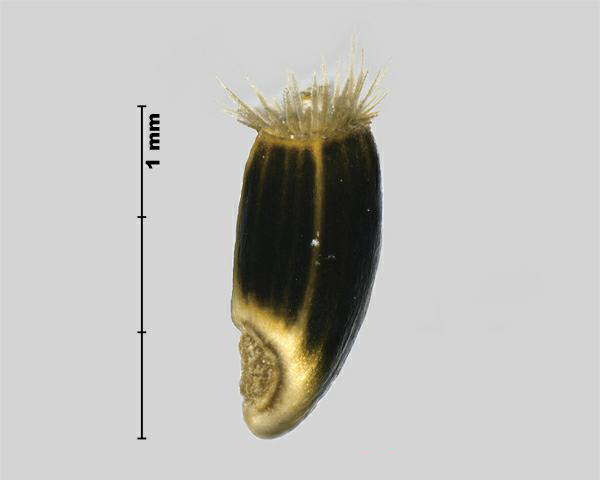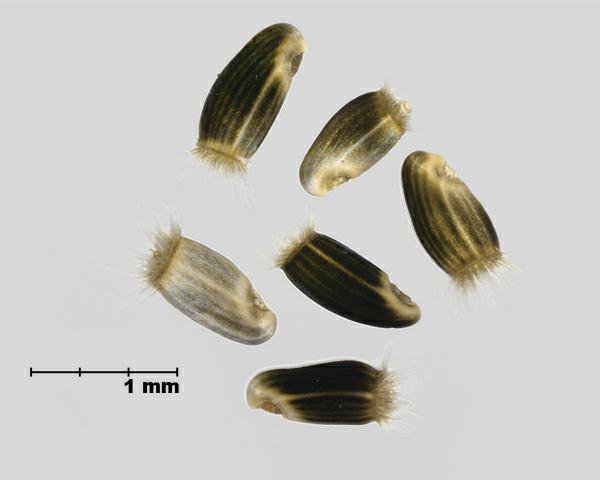Family
Asteraceae
Common Name
Squarrose knapweed
Regulation
Prohibited Noxious, Class 1 in the Canadian Weed Seeds Order, 2016 under the Seeds Act. All imported and domestic seed must be free of Prohibited Noxious weed seeds.
Distribution
Canadian: Absent from Canada (Brouillet et al. 2016Footnote 1).
Worldwide: Native to temperate Asia and introduced in the western United States and Michigan (USDA-ARS 2016Footnote 2, DiTomaso and Healy 2007Footnote 3).
Duration of life cycle
Perennial
Seed or fruit type
Achene
Identification features
Size
- Achene length: 2.5 - 3.5 mm
- Achene width: 1.5 mm
- Pappus length: 1.0 - 2.5 mm
Shape
- Achene is oblong with a rounded bottom and flat top, laterally compressed with a small notch near the base
Surface Texture
- Achene is smooth and dull
Colour
- Light brown to straw-coloured achene with strong central stripe, numerous thin side stripes and a pale area around the basal notch
Other Features
- Collar at top of the achene is narrow and yellowish.
- Notch at the base of the achene is shallow (under 1.0 mm depth).
Habitat and Crop Association
Degraded rangelands, grasslands, open sites, logged areas, and roadsides (Cal-IPC 2016Footnote 4).
General Information
Squarrose knapweed was accidently introduced into California in 1930s with sheep ranching (Howell 1959Footnote 5). This species tolerates a wide range of temperatures and drought conditions, but does not tolerate cultivation or irrigation (Whitson et al. 1996Footnote 6).
Similar species
Spotted knapweed (Centaurea stoebe)
- Spotted knapweed achenes are a similar size, oblong shape, dark colour, striped pattern and pappus length as squarrose knapweed.
- Spotted knapweed is narrower (by 0.5 mm), often lighter in colour with a shallower notch (by 0.5 mm) and a narrower pale area around the notch than squarrose knapweed.
Photos
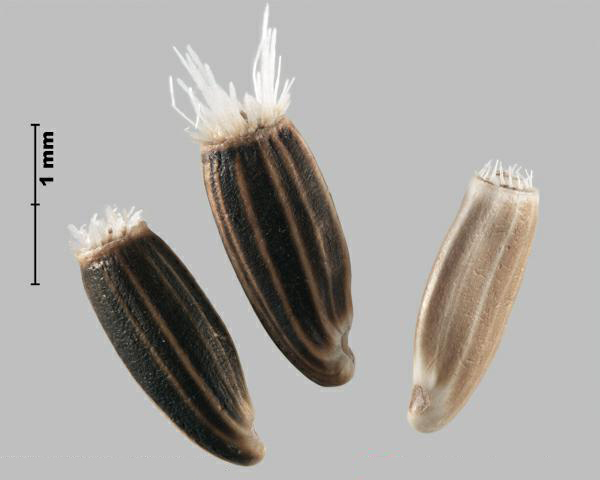
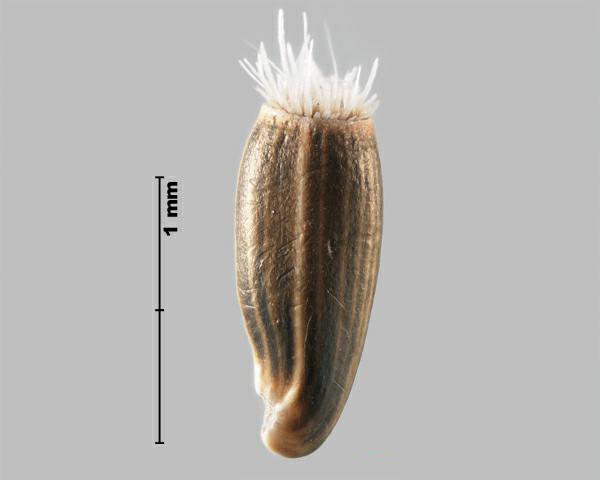
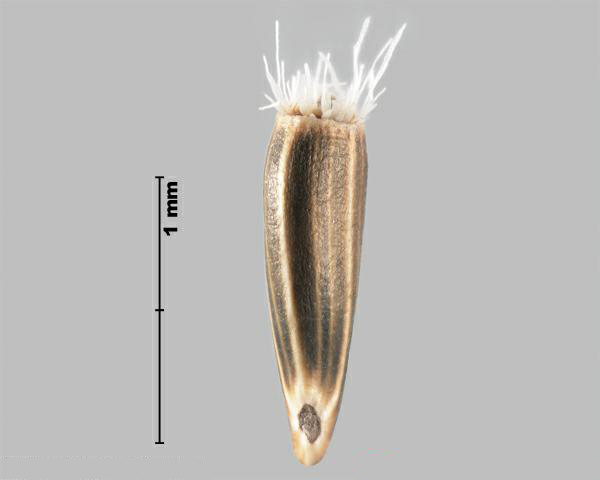
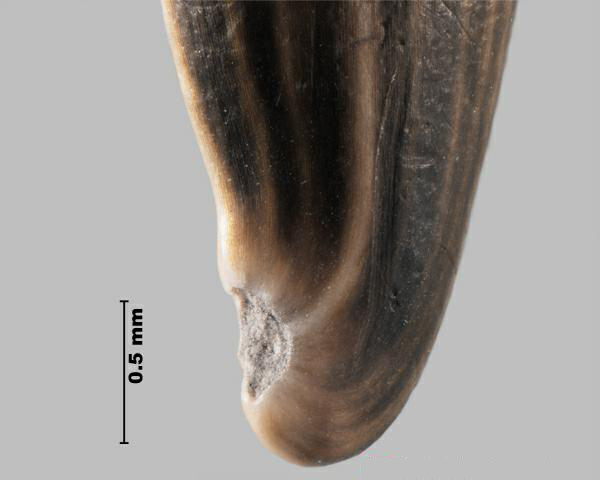
Similar species
